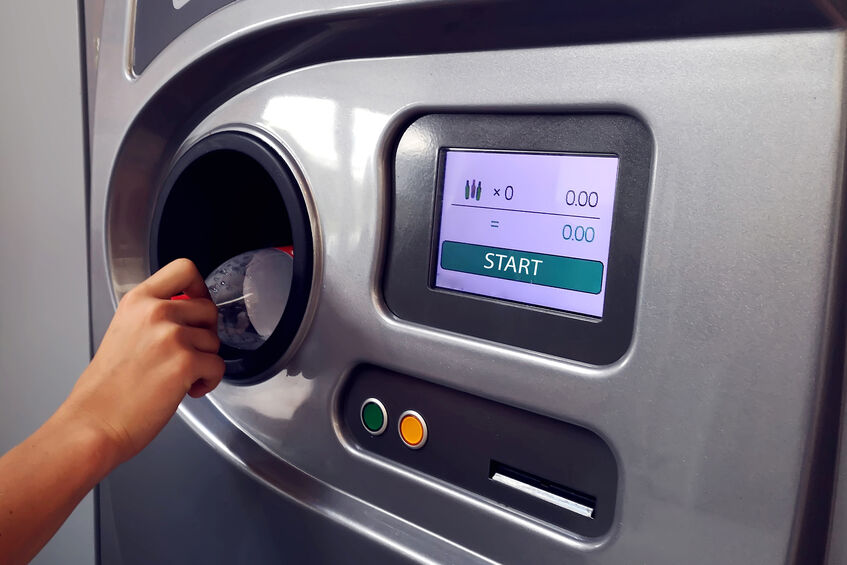Scotland’s Deposit Return Scheme Delayed Until at least October 2025

Scotland’s Deposit Return Scheme (“DRS”) has been delayed until October 2025, around the same time England, Northern Ireland and Wales are expected to launch their own schemes.
The Scottish Parliament passed the Deposit and Return Scheme for Scotland Regulations in May 2020. The Scottish scheme would see consumers paying an additional 20p deposit on single use drinks containers made of either PET plastic, glass, steel or aluminium which could then be reimbursed on returning the empty container at a dedicated return point (e.g. via specially built reverse vending machines or certain retailers).
The current scheme is industry led and funded with millions of pounds already invested in the DRS infrastructure required for delivering the scheme. The 2020 Regulations also provide for a scheme administrator to be appointed (Circularity Scotland Ltd). The administrator would manage producer registrations with SEPA and records of eligible drink containers (called “scheme articles”) placed on market. The purpose of the scheme is to improve recycling rates and reduce waste for the benefit of the environment by incentivising consumers to return scheme articles for a refunded deposit. There are already examples of similar schemes adopted elsewhere in Europe that have achieved just that. Germany, for example, currently has a 97% return rate for PET bottle recycling as a direct result of such a scheme.
Scotland’s DRS has been the subject of heated discussions at governmental level (Holyrood and Westminster) and the delays in the rollout of a DRS for Scotland sparked questions about the viability of the scheme in its current form and created uncertainty on how and when a workable DRS for Scotland would be delivered. One major concern for the drinks industry (in addition to cost) was the real potential for the creation of a trade barrier between Scotland and the rest of the UK on the basis that different prices would or could be charged for equivalent products in Scotland versus the rest of the UK. This could have potentially devastating results on Scottish drinks businesses and restrict consumer choice by precluding certain businesses - especially smaller businesses - from participating in the Scottish market because it was simply too expensive.
In order to launch the scheme ahead of the other UK nations, the Scottish government applied for an exclusion from market access principles under section 10 of the United Kingdom Internal Market Act 2020. A temporary exclusion under section 10 of the Act was granted by the UK Government, however this exclusion was subject to various conditions. The most significant of these would be that the DRS would only be able to proceed if it excluded glass from its scope.
The Scottish Government has now concluded reluctantly that the DRS for Scotland “cannot continue in its current form”. It would be unrealistic for the Scottish Government to commit to delivering a scheme ahead of the rest of the UK when it is not clear what scheme articles will be included and what levels of deposits will be set across the rest of the UK. Political tensions between the Scottish and Westminster Governments have been exacerbated.
The Westminster Government is still to legislate for the DRS in England and the Scottish Government has concluded that it cannot find itself in a position where it launches its DRS in potential breach of the Internal Market Act 2020.
The decision to delay Scotland’s DRS until October 2025 would appear to be the most pragmatic course of action in the circumstances. Cooperation with the other UK nations will now be essential in delivering an interoperable scheme that works for the whole of the UK. Although not yet certain, it does seem that any scheme will now exclude glass.
Although it is clear that the current Scottish Government is committed to delivering a DRS, what is less clear is what it will now do in relation to the millions already invested in the DRS and what role Circularity Scotland will play going forward. It is inevitable that the current 2020 Regulations will need to be revisited and there are likely to be calls for compensation from those who have already paid fees to Circularity Scotland and invested significant sums in changing their processes to accommodate the DRS.
The information contained in this newsletter is for general guidance only and represents our understanding of relevant law and practice as at June 2023. Wright, Johnston & Mackenzie LLP cannot be held responsible for any action taken or not taken in reliance upon the contents. Specific advice should be taken on any individual matter. Transmissions to or from our email system and calls to or from our offices may be monitored and/or recorded for regulatory purposes. Authorised and regulated by the Financial Conduct Authority. Registered office: 319 St Vincent Street, Glasgow, G2 5RZ. A limited liability partnership registered in Scotland, number SO 300336.


